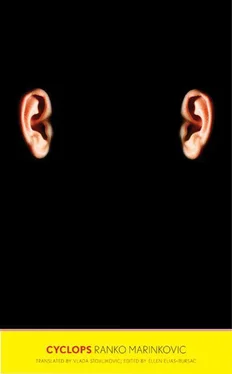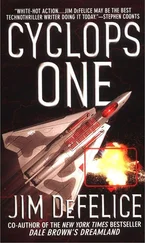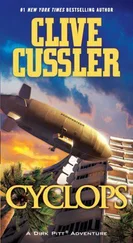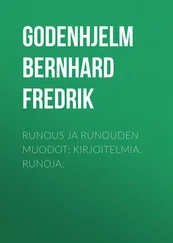“Well? Looks lovely, doesn’t it?” Melkior loosed his acte gratuit and went momentarily deaf, like someone whose rifle had gone off by accident in his hands.
“Im-pertinent cad!” gurgled the rock through his catarrhs, and passersby agreed with him, silently.
“Gratuit,” ejaculated Melkior mechanically, by way of explanation to those who had turned around after him. And he blushed, miserably.
No, I’m no good at that sort of thing. No good at all, really …
“… that it should become a universal law. I remembered it looking at the ungrateful sky-carrier. I’m thinking of the tiny suns that will shine on his bald pate when he goes out again. The bastard. That very hat would have cost him thirty dinars at Kikinis. But he still wanted to fight me.”
Ugo was regretting the gift.
“We should have looked at it not against the sun but in the dark. And then gone to Kikinis the astrologer. He would have shelled out ten dinars for it, at the very least. We played at being anonymous benefactors and eccentrics, Kantian philistines, victims of the categorical imperative — phooey! When we could have used the ten dindin-din to giventake till lunchtime. A fatal mistake!”
They walked in silence. Melkior was deliberately steering the stroll toward the Theater Café. Toward Viviana. But how is it, if he was with her last night, how is it that they have arranged nothing? Oh but they have. For tonight.
Under cover of darkness. He’s avoiding his fiancée. Let us hide our loves. They’ll get married after he’s done his National Service. And a war. They’ll have children. War orphans: enormous heads, large eyes, tiny skeletons, ribs, kneecaps … “Have you made your last wish, Eustache? Here comes Scarpia.”
Melkior said nothing: his jaw had gone stiff. He had a dreadful fear of the police. The Platonic Politeia.
The man was limping toward them on uneven legs, but with a “Make way!” face. Uniformed, gilded …
“E lucevan’ le stele …” Ugo burst into song while the man was still quite some way off, following his progress. But just as the man came in line with them he elocuted in the manner of the ancient, pathos-ridden school of acting: “There is something rotten in the state of Denmark.”
Scarpia paused in the arsis (on the longer leg) with the thought “Should I take this as …?” and while he was making up his mind Ugo pulled Melkior around the corner. Any port in a storm.
“It would have been an uneven struggle. Don’t be ashamed of the retreat. The day of reckoning is at hand. The exact date is known to don Fernando, they told it to him at the Corso.”
“Don Fernando” rang inside Melkior like an alarm bell, like the fear of being seen with Ugo in street excesses. Don Fernando was a profound mystery, a myth, a “something else.” The approach to problems. The responsible care for mankind. No less.
“Who told him?” The mood for joking fizzled out in Melkior.
“The bearded bods. The sternfaces. At least, not bearded, these days they’re clean-shaven; let’s say the morose, the men with the furrowed brows. All in the name of mankind.”
“While you … you don’t give a tinker’s for mankind?” asked Melkior, suspiciously, even with a shade of moral contempt.
“Frankly … no!” whispered Ugo repentantly, while at the same time swelling with incipient laughter. “Somehow I don’t seem to care for it at all. While mankind, I know, suffers horribly because of me. Heh, heh … I’m an ingrate, mon ami , and a bad one at that.”
“That you are indeed,” said Melkior from his sudden solitude. What’s to be said now? Mankind? Well, that’s everybody. Including Enka. Including Freddie. Including Maestro. There are various mankinds. The Enka mankind, the Freddie mankind, the Mr. Kalisto mankind … don Fernando’s MANKIND? The word and the pathos. You can say anything in a solemn tone—“the Dardanelles,” for instance. So what do I care? Rot the Dardanelles.
“Did he smite you hard, good my friend?” he suddenly asked Ugo with ardent sarcasm. “Show me.”
“What? Oh, you mean last night, in the battles with Fredegarius? Who told you — Chicory? Yes, it was a nasty altercation, my good friend. Blood flowed in streams. And I got my share of the wounds — a bludgeon in the face. He swings a heavy punch, does that Roscius-Rostratus. I was being your outer wall, antemurale Melkioritatis! My physical person stopped the cabotin’s creative force, as shown by the upper lip enclosed herewith. Here, look at the left corner, that’s where the celebrated protagonist’s front hoof landed.”
Yes, that part of the lip was still swollen. Melkior eyed the wound with sympathy.
“But we won the war, pardieu! Fredegonde has been won and is standing firmly by us. No problems there.”
“Standing by you,” and a sigh uprooted itself from Melkior.
“No need to sigh, is there? By me, by you … Insomma , she’s with us! And for my sacrifices and bravery in combat, I took my slice of the spoils of war, you understand.”
“You were with her, afterward?”—bandaging his wound with a smile.
“Naturellement, mon petit!”
“At her place?”
“A studio flat, couch, (two couches!), bathroom, hot water. Et, ce qui est le plus important, elle m’aime.”
“What about you?”
“Fou d’amour!”
Peeking up her skirt while she wiped the blood from his snout — that was “amour”? No, he couldn’t take any more. Tension had reached a high point and suddenly he blew a synaptic fuse. Flash!
“You’re such an asshole!”—and then darkness … and peace.
“Oh?” Ugo was surprised. “And you’re some kind of hysteric, Eustachius the Most Pure? That’s what comes of abstinence. I practice sexual congress. Why not follow my example?”
Melkior chuckled inside. Enka. What was she doing now? He felt the tug of desire to call her. No, Coco was back from the clinic. They were now mourning his failure with the heart. Well, who ever had any success in matters of the heart, mon Coco?
“Date tonight?” he asked ingratiatingly, begging.
“No.” Ugo was being appreciative of his own importance.
“What, the brush so soon?”
“No — at ease. For today.” And Ugo smacked his lips, with gusto.
Suddenly he gripped Melkior’s shoulders and turned him so that they were face to face. He looked into Melkior’s face roguishly, derisively.
“Hurts you, Eustachius, doesn’t it?” and he burst into laughter. “Well, in that case none of it is true. Not a thing.” He gave Melkior a protective hug. “Not a thing, get me? She’s as pure as Ophelia. She can go to a nunnery if she likes. But … but perhaps she won’t, eh? The fair Fredegonde. Perhaps she prefers this sinful Giventakian life? Ha-haaa, my good prince!”
And I still don’t know her … Viviana’s … name. Now she’s Fredegonde on top of all else! Oh Lord, what is the matter with me?
You’re in a bad way all right, replied the Lord.
“Hey, Parampion, tell me,” he asked hesitatingly, “who is that woman?”
“A mystery woman!” said Ugo seriously. “Like any other. Perhaps even …” He did not want to finish. “Here comes my tram. Kalisto ringing for lunch. Tired. See you at the Give’nTake tonight,” he added from the tram step.
“Perhaps even” what? A mystery woman. He seems to have a way with these mystery women. All sorts of thing can lurk there. Various possibilities. Anything is possible. Nothing is ruled out. Not under the rules. Under rule. Under their rule. Like the fragrance of spring’s breath they pass by; that is how it all begins. Like a bolt of lightning they strike our nerves, batter us, roll us, cut us up, cook us, soften us. We spread ourselves docilely, mushlike, jamlike, over their whims. As long as the whims last. Then they get us unstuck, scrape us off, clean it all out, every last bit, so as not to leave behind a single crumb of “the past,” so as to consign all to utter and eternal oblivion.
Читать дальше












